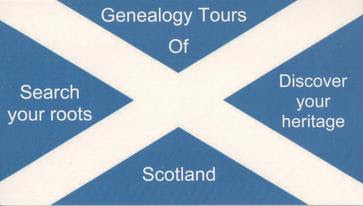The Mitchell houses a Genealogy Centre which is a hub for the ScotlandsPeople Centre in Edinburgh. Here you can access the same databases as you can in Edinburgh. The same daily research fees of £15 apply.
The Mitchell also houses the Glasgow City Archives and its extensive collection relating to the history of Glasgow including:
Maps
Poor relief records - these are perhaps the richest source of genealogical information across any archival collection. The poor relief was not for the unemployed, but for the unemployable. Lunatics, infirm, disabled, or the elderly were eligible to apply for poor relief. Able bodied adults who were capable of work were not eligible. The exception were women whose husband had deserted them, widowed women or women with one or more children who were illegitimate.
The information in the applications are often rich with details on the lives of the people who made the application.
Source for Irish Family History because of the influx of the Irish into Glasgow at various times, the Glasgow City Archives has become an important source for Irish Family History. Many of the Irish were in positions to have to apply for poor relief and through these records, you can gain a wonderful sense of their lives. Often you can find their counties, cities and townlands through these applications as well.
Archival materials pertaining to Glasgow businesses. While these rarely include personnel information, they do include minute books which may name your ancestor. As well, they have the financial records for the business, some photographs and correspondence from the businesses.
Schools - beginning in 1870, head teachers were required to keep a log book. This contains more social history than detailed information on the individual students. It may talk about attendance being low for planting or harvest or due to any illnesses. More important for family historians are the school admission records. These may include names, previous schools attended, reason for leaving the school, notes on siblings in the school.
Churches - ScotlandsPeople has the records for the established church of Scotland. The Glasgow archives has records for all of the other denominations. Records include tithe records, sick calls, kirk session records (an absolute wealth of information), baptisms, marriages and burials or mort cloth rentals.
Prison Records (Barlinnie)
Asylum Records (Glasgow Lunatic Asylum, renamed Glasgow Royal Lunatic Asylum and now known as Gartnavel Royal Hospital)
Burial and lair records - these can tell you who purchased the lair, the fee paid, the address of the purchaser, who is buried within the lair and sometimes their relationship to the lair owner. Note that between 6 and 12 people can be buried within one lair. Other records held by the Glasgow Archives includes obituaries and undertaker records.
NHS Archives. The NHS did not start in Scotland until 1948.
The Glasgow Archives also have the estate recordsfor the island of Islay as well as the private papers for a number of landed families. The information in these records can include rental books, leases or tack agreements, correspondence, diaries and much more.
The family history resources available through the Mitchell can be explored at: www.glasgowfamilyhistory.org.uk
The Mitchell has an extensive collection of photographs, documents and eye-witness accounts regarding the Blitz on the Clydeside when the area was heavily bombed during WWII, with factories and shipyards being the main target for destruction.
The Mitchell has a virtual volumeswebsite where you can view maps, photos and document the changes in Glasgow
The Mitchell also has a number of Scottish newspapers available on microfilm.


No comments:
Post a Comment